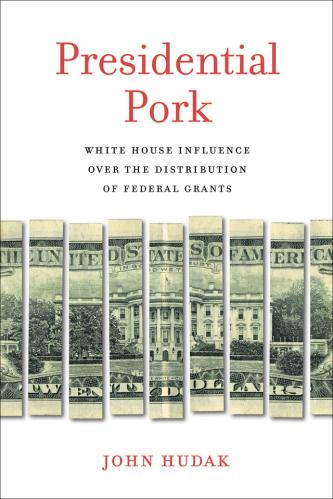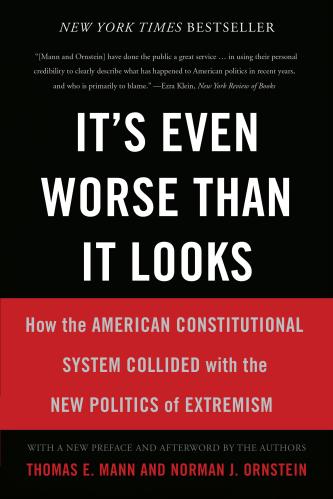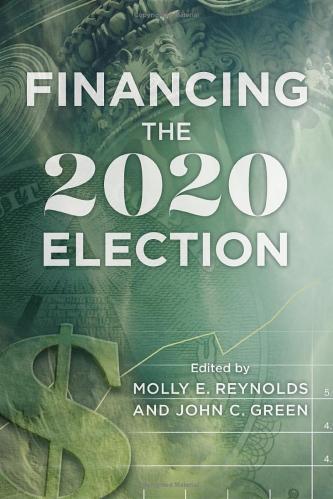On Thursday, Attorney General Jeff Sessions opted to end a more than four-year-old policy that granted a safe haven for state-legal marijuana companies (and consumers) to engage in the cultivation, processing, sale, possession, and use of cannabis under tightly regulated conditions. This policy, known as the Cole Memo, was initially enacted during the Obama administration, in response to Colorado and Washington legalizing adult-use cannabis in 2012. The Cole Memo effectively told federal prosecutors not to bring cannabis-related cases in states that have legalized if and only if companies and consumers abide by a state-provided regulatory system and do not engage in other bad acts like engaging with drug cartels or selling to children.
Has the policy been perfect? No. Of course, no policy is. However, the Cole Memo did provide a system by which cannabis was no longer sold only by unregulated dealers and/or drug cartels. It provided safeguards and promoted the testing of products. It put states on notice to develop robust regulatory systems. It allowed an industry to move out of the shadows and into a system that taxed and regulated its products.
Jeff Sessions has ended that approach. So, let’s review some of the consequences of his approach to revamping cannabis policy in the United States.
Regulated cannabis is safer than unregulated cannabis
While the Attorney General may be unaware, cannabis has existed in the United States since its founding, and hemp was grown on this land long before that. Legalizing cannabis did not suddenly bring cannabis into American communities. It has been here, and it will remain here whether the Attorney General likes it or not. What legalization was able to accomplish, however, is to ensure that cannabis grown in a commercial market would be tested for safety and heavily monitored. It set up a system whereby dispensaries would ask for identification to confirm the age of a consumer. It put into place tight inventory controls to prevent out-of-state diversion or “lost plants,” addressing concerns of adjacent states with differing legal regimes. It ushered in programs with strict background checks for employees, business owners, and in some cases, investors. Legal cannabis provides safeguards that illegal cannabis does not. The Attorney General is promoting a policy where safeguards around cannabis would end, but the production, sale, and use of marijuana would not.
There is significant public support for cannabis reform
Public support for cannabis is at an all-time high. In the latest polling from Gallup, 64 percent of Americans support legalizing cannabis for adult use. That number has grown significantly since the 1990s and has only increased since states began legalizing marijuana in 2012. Americans are looking around at the experiences in Colorado, Washington, Oregon, Alaska, the District of Columbia, and Nevada, and they are not horrified by the outcomes. If anything, they are growing more confident in the systems that have been put in place and the outcomes they have produced.
In fact, in 2016, cannabis was on the ballot in nine states—Arizona, California, Maine, Massachusetts, and Nevada for adult use, and Arkansas, Florida, Montana and North Dakota for medical. The initiatives passed in eight of the nine states (except Arizona) and in eight of those nine states (except Arkansas) received a higher percentage of support than did President Donald Trump. Cannabis is more popular than Congress; Cannabis is more popular than the president. Cannabis reform is popular, and a policy like the one the Attorney General issued today is not.
The president disagrees with federal intervention
During the presidential campaign, candidate Donald Trump voiced support for medical cannabis and stated that adult-use cannabis should be left up to the states. The Attorney General’s decision to rescind the Cole Memo flies in the face of Mr. Trump’s own words. It suggests one of two things is happening in the administration. Either the Justice Department is issuing memoranda with nationally-significant policy implications without consulting the White House, or the president has changed his mind since the campaign and has given the Attorney General the authority to remove state-level discretion around adult-use cannabis. Either way, this policy is born from an administrative problem: an out-of-control Attorney General or a president reneging on his promises.
Who will pay for the Attorney General’s cannabis crackdown?
As I have noted previously on the Fresh Toast, the Attorney General does not have unlimited resources to enforce federal law. Every day federal prosecutors make choices about which crimes and cases to pursue. Chasing after the thousands of legal marijuana growers, processers, and dispensaries and the tens of thousands of people they employ will cost DEA significant amounts of federal tax dollars. Add to that the costs US Attorneys will incur prosecuting those individuals and representing the government on appeals. That very quickly eats into the same Department of Justice budget that could be spent fighting terrorism, combating cybercrime, dealing with the opioid epidemic, eradicating MS-13 or dozens of other federal law enforcement priorities. These are the choices the Attorney General has to make. It is clear the public would rather dollars be spent on other priorities, but budgets are limited and the rescission of Cole complicates that.
A free market/states’ rights acolyte embraces government control
The Obama-era Cole Memo is often characterized as a liberal hat tip to all things cannabis. But in truth, the policy is consistent with core conservative ideas. First, Cole explicitly embraces states’ rights. Rather than forcing cannabis legalization or cannabis prohibition down the throats of every state, it gives states the autonomy to make the choice for themselves. States who legalize are obligated to set up a regulatory system and ensure that companies do not engage in a list of eight problem areas such as selling to kids or shipping across states lines. States who do not legalize are still subject to state and federal enforcement for marijuana crimes.
Second, the Cole Memo advances market benefits. Although regulation is heavy under Cole and the state systems that it produced, the memo actually ushers in de-regulation. How so? Prohibition is the most stringent form of regulation. Allowing states to let businesses operate in the light of day, and have access to capital and other perks afforded to legal enterprises, promotes a more free-market system. And unlike black-market marijuana businesses, state-legal marijuana businesses have the benefits of the rule of law and the many state-level business protections therein. At one time, Attorney General Sessions embraced the free market and states’ rights. Today, he has elected to do the opposite.
Public health data in the wake of legalization
The Attorney General’s decision today also puts at risk some of issues around public health. It is true that cannabis legalization carries public health risks surrounding use patterns, youth use, dependence, and traffic safety, among other concerns. However, data from the early legalization experiments—Colorado and Washington—have some positive signs for public health. Youth use is down in Colorado and statistically unchanged in Washington according to the latest government surveys. Opioid deaths and/or use have dropped or slowed relative to the national average in many states that have legalized medical and/or adult-use cannabis. And while those relationships do not necessarily indicate causation, they are at worst promising. What’s more, when states tax legal cannabis sales, they can direct some of that revenue to public health and public education campaigns. Programs to combat youth use or driving while high have been employed in many states. Funding for mental health and addiction services has increased because of flows of cannabis tax revenue. Money that formerly lined the pockets of drug dealers now helps states deal with the risks associated with the same cannabis use that has been happening all along.
Today is a good day for drug dealers
Drug warriors are likely applauding Attorney General Sessions’ decision today, but so, too, are drug dealers. Any threat to the legal cannabis market is a benefit for the illegal market. If in response to rescinding the Cole Memo, federal law enforcement officers and prosecutors begin to target state-legal cannabis enterprises, this will allow the black market, once again, to flourish in states where it had been supplanted for years. In states that are starting to roll out legal cannabis or are planning to, such actions will allow the black market to continue to flourish.
Rescinding the Cole Memo will not rid the U.S. of cannabis, no matter how much the Attorney General wishes.
Mr. Sessions has stated that good people don’t use marijuana, and so he has convinced himself that he is only punishing bad people. He likely believes he is going to fix the cannabis problem in the United States. In reality, his efforts will only affect regulated, tested, state-sanctioned cannabis. This move will do nothing to affect demand for cannabis. It can only affect legal supply.
But there’s more to this paradoxical policy choice. DOJ could have announced a renewed commitment to combating the many state-illegal cannabis enterprises, which for many large-scale operations are intermingled with the sale of other, harder drugs. Instead, the Attorney General announced open season on companies that pay taxes (state and federal), employ workers who pay taxes (state and federal), enact age identification checks for sales, and comply with state-mandated clear labeling and safe packaging requirements. He declared the real threat in places like Colorado and California are not the shady, black market cannabis distributors. The real threat are the businesses operating in the sunlight who test their products product for potency and composition, for pesticides or other chemicals, for mold or other adulterants.
Without question, Attorney General Jeff Sessions was within his right to rescind the Cole Memo, remove state-level protections for adult-use cannabis businesses, and recommit the Department of Justice to the long-failed war on cannabis. Like any executive action, it only lasts as long as the office-holder allows. Marijuana is also illegal under federal law in all cases, no questions asked.
But there were a lot of reasons for Jeff Sessions to leave the Cole Memo alone, or revise it in ways that would help strengthen state-level cannabis regulatory programs. Instead, he opted for an outdated, obviously ineffective approach, while turning a blind eye to public opinion, presidential priorities, policy experiences, and empirical data. Rescinding Cole is something that will irritate a majority of Americans from both parties, cannabis industry operators, cannabis users, state governors from both parties, the president, states’ rights activists, and free-market supporters. The decision will likely evoke the wrath of many in Congress on both sides of the aisle.
Attorney General Jeff Sessions will find a lot of opponents to his decision today. But hey, at least he’ll have the support of drug dealers.
The Brookings Institution is committed to quality, independence, and impact.
We are supported by a diverse array of funders. In line with our values and policies, each Brookings publication represents the sole views of its author(s).











Commentary
Why Sessions is wrong to reverse federal marijuana policy
January 4, 2018